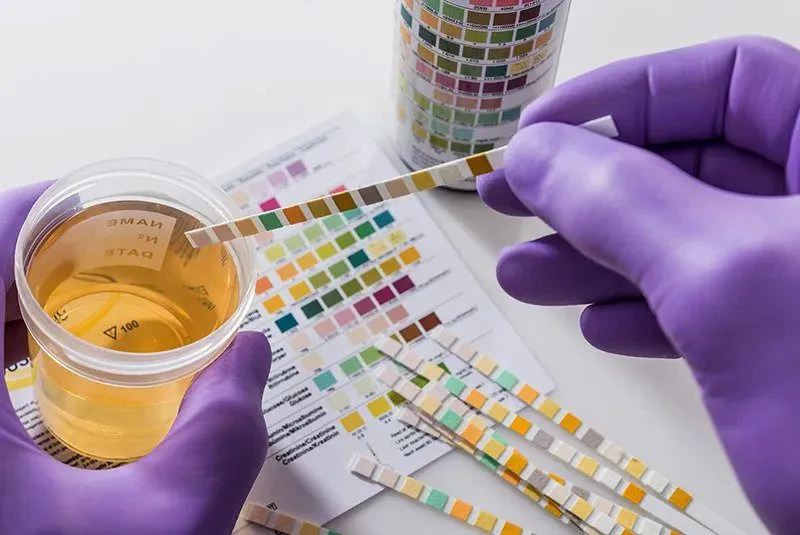Urine drug screening, also known as urine drug testing, is a common method used to detect the presence of drugs or their metabolites in a person’s urine sample. This process helps in assessing recent drug use and is widely used in various settings, including workplaces, healthcare facilities, and legal situations. In this article, we’ll delve into how urine drug screening works, its purpose, and its significance.
Understanding Urine Drug Screening
Urine drug screening plays a crucial role in detecting the presence of various drugs in a person’s system. It involves collecting a urine sample from the individual and analysing it for the presence of specific drugs or their metabolites. The process aims to provide accurate and reliable results regarding recent drug use.
The Screening Process:
- Sample Collection: The process begins with the collection of a urine sample from the individual undergoing testing. The sample is typically collected in a sterile container provided by the testing facility.
- Transportation and Preservation: Once collected, the urine sample is transported to the laboratory for analysis. Proper handling and preservation techniques are employed to ensure the integrity of the sample during transit.
- Analysis: In the laboratory, the urine sample undergoes rigorous testing to identify the presence of drugs or their metabolites. Various methods, such as immunoassay screening and gas chromatography-mass spectrometry (GC-MS), may be employed to achieve accurate results.
- Result Interpretation: Following analysis, the results of the urine drug screening are interpreted by trained professionals. A positive result indicates the presence of one or more drugs in the urine sample, while a negative result suggests the absence of detectable substances.
Types of Drugs Detected:
Urine drug screening can detect a wide range of substances, including but not limited to:
- Amphetamines
- Cocaine
- Marijuana (THC)
- Opioids
- Benzodiazepines
- Barbiturates
- Alcohol
- Nicotine
These are just a few examples of the drugs that can be detected through urine drug screening. The specific drugs tested for may vary depending on the requirements of the screening program or the individual’s circumstances.
The Significance of Urine Drug Screening
Urine drug screening serves several important purposes:
- Workplace Safety: Many employers use urine drug screening as part of their pre-employment screening process or for random drug testing of employees. This helps ensure a safe and drug-free work environment.
- Healthcare Monitoring: Healthcare providers may use urine drug screening to monitor patients who are prescribed certain medications, such as opioids. This helps ensure that patients are taking their medications as prescribed and not engaging in misuse or abuse.
- Legal and Forensic Applications: Eventually, urine drug screening is often used in legal and forensic settings to provide evidence of drug use in criminal investigations or court cases.
- Treatment Monitoring: Individuals undergoing treatment for substance use disorders may be required to undergo urine drug screening as part of their treatment plan. This helps healthcare providers monitor the individual’s progress and adherence to treatment.
Limitations and Considerations:
While urine drug screening is a valuable tool, it’s essential to acknowledge its limitations and considerations:
- Detection Window: The detection window for drugs varies depending on factors such as drug type, dosage, and individual metabolism. Some drugs may only be detectable for a few hours, while others can remain present in urine for several days or weeks.
- False Positives: Certain medications, dietary supplements, and foods may interfere with urine drug screening, leading to false-positive results. It’s crucial to consider these factors when interpreting test results.
- Privacy and Consent: Individuals undergoing urine drug screening have the right to privacy and informed consent. Testing procedures should adhere to ethical and legal standards to protect the rights and dignity of the individual.
Conclusion
Urine drug screening is a valuable tool for detecting recent drug use and monitoring individuals in various settings. By analyzing urine samples for the presence of specific drugs or their metabolites, urine drug screening helps promote safety, accountability, and effective treatment. Understanding how urine drug screening works and its significance is essential for individuals, employers, healthcare providers, and legal professionals alike.
Frequently Asked Questions (FAQs)
How accurate is urine drug screening?
In fact, urine drug screening is highly accurate, with results typically confirmed through rigorous laboratory testing methods.
What is the detection window for urine drug screening?
The detection window varies depending on factors such as drug type, dosage, and individual metabolism, ranging from hours to weeks.
Can medications interfere with urine drug screening results?
Yes, certain medications, dietary supplements, and foods may interfere with urine drug screening, potentially leading to false-positive results.
How Long Can Drugs Be Detected in Urine?
Drug detection times in urine vary by substance, frequency of use, and individual factors (e.g., metabolism, age). For example:
- Marijuana (THC): Up to 30 days for chronic users, 3–7 days for occasional use.
- Cocaine: 2–4 days.
- Opioids (e.g., heroin): 2–3 days.
- Amphetamines: 1–3 days.
Detection windows depend on drug type, dosage, hydration, and testing method. Always consult a professional for personalized insights.
Who can request urine drug screening?
However, urine drug screening may be requested by employers, healthcare providers, legal authorities, and substance abuse treatment programs.
How are urine drug screening results interpreted?
Trained professionals interpret urine drug screening results, hence a positive result indicating the presence of drugs and a negative result suggesting their absence.
What is the procedure for urine drug screens?
Basically, the urine drug screening process involves collecting a sample in a sterile cup under supervision to prevent tampering. The collector checks the sample’s temperature and appearance for validity, then splits it into two containers (one for initial testing, another for confirmation if needed). Privacy is maintained while ensuring sample integrity.
For more information Click here..

